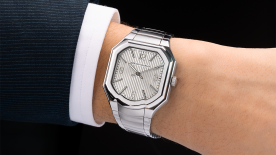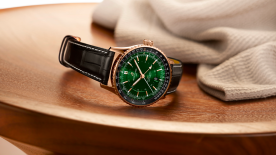In January 2006 we devoted an article to the topic of sustainable development in the watch industry. It was not exactly a taboo subject... but it might as well have been. Back in those days, keeping bees or using recycled paper for your catalogues made you an eco-warrior. We should also note that, 15 years ago, the vast majority of watch brands weren’t prepared to answer our questions. Probably because they had never given them much thought themselves.
In 2021, thankfully, things are different. LVMH, Richemont and the Swatch Group, because they are all quoted on the stock market, are obliged to devote a section of their annual reports to sustainable development. Nevertheless, as far as brands are concerned (rather than groups), IWC stands virtually alone.
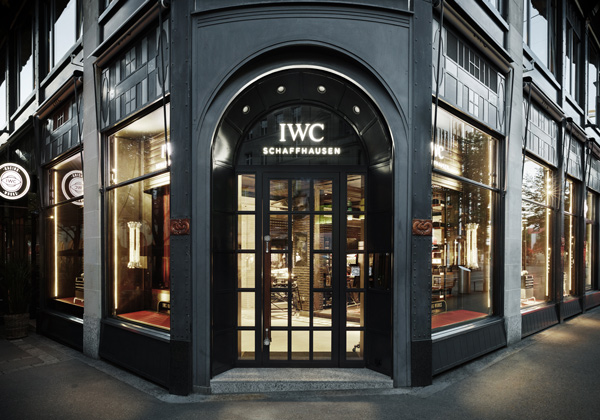
In 2006, the Schaffhausen manufacture was already showing the way. Employees who commuted to work by public transport were reimbursed 80% of their travel costs; grants were provided for the purchase of energy-efficient vehicles; and the company even helped staff with the cost of installing solar panels in their homes.
The seeds of sustainability
For 15 years (2002-2017) Georges Kern was a key advocate for sustainability within the company. Christoph Grainger-Herr, the current CEO, is maintaining the project and expanding it. The results are still streets ahead of anything being done by other watchmaking companies.
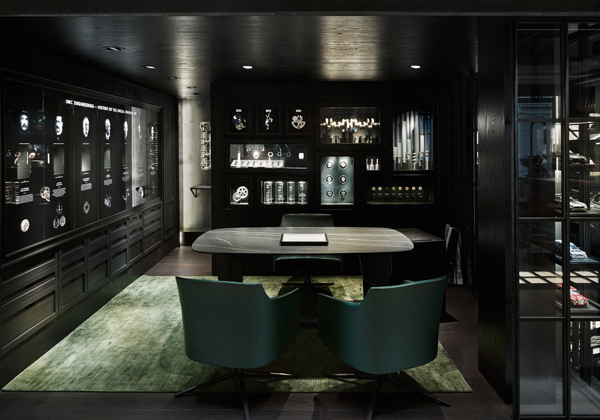
The brand currently employs 554 staff at its headquarters in Schaffhausen, 232 in the manufacture itself and a further 557 in boutiques and branches around the world, making a total of 1343 employees worldwide. IWC operates a network of 170 own-brand boutiques and 900 external points of sale, plus around 20 or so pop-up stores.
But these are not just numbers. The manufacture is aiming for all of its own-brand boutiques to operate on 100% green energy by 2022. At the headquarters, this is being accomplished through the installation of solar panels and other renewable energy sources. IWC even has its own bus stop, whose timetable fits with employees’ work schedules.

2020, a pivotal year
In 2017, IWC adopted an ambitious three-year road map for its sustainable development goals, which also included some social targets such as gender parity. Goals included being re-certified by the RJC (Responsible Jewellery Council), reducing greenhouse gas emissions by 10%, reducing packaging by 30% and doubling the number of women in management roles.
Another goal was to achieve gender parity in training opportunities, and to reduce absenteeism by 10% by actively promoting fitness and wellbeing. Finally, IWC hoped to double the number of hours spent on voluntary projects, during working hours, by employees wishing to do so.
“We achieved all of these objectives, with the exception of our goal to double the number of women in management positions,” announced the company, which has a Social and Environmental Responsibility Committee comprising 10 people, including one full-time.
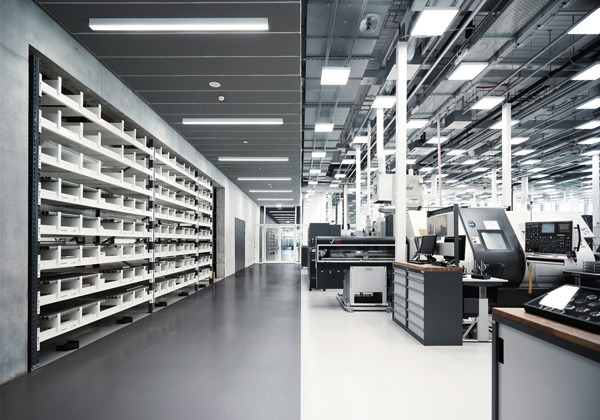
2022: full steam ahead
On the strength of this success, the company is now pursuing new targets. The first is to finally achieve the goal of doubling the proportion of women in management roles. Another target is to prioritise a more virtuous technology infrastructure. This means tackling not only energy-hungry data centres, but also the luxury industry’s well-known addiction to having the latest gadgets, particularly smartphones, when the recommendations point to holding on to equipment for as long as possible.
In environmental terms, IWC always chooses products bearing the FSC label (Forest Stewardship Council, which recognises sustainably managed forests). In social terms, the manufacture has set new goals: the first is full salary parity, while the second is to maintain its “Great Place to Work” ranking. IWC is currently not just the top watch manufacture in the list – it’s the only one. It is our understanding that several brands have tried to secure inclusion, but were unsuccessful.

The tricky question of suppliers
The final issue is the sustainable sourcing of raw materials. IWC is working towards using 100% recycled gold, and 70% recycled steel, working with Responsible Steel which, like the RJC or the GRI (which certifies corporate responsibility and sustainability initiatives) can authenticate the sustainability of companies that request it.
What about partners and contractors?
In order to be totally virtuous, a company must also be able to rely on a network of partners and contractors who operate under the same social and environmental standards. Currently, there is no way of holding suppliers to the same standards, other than the symbolic pressure they can apply as the contracting party.
IWC has nevertheless set itself the long-term goal of being the driver of a socially responsible and ethical global watchmaking ecosystem. It is to be hoped that the Schaffhausen brand can kickstart a positive movement that grows to encompass even the independent subcontractors who form part of a vast industrial network that lies largely outside the realm of publicity and certification.




